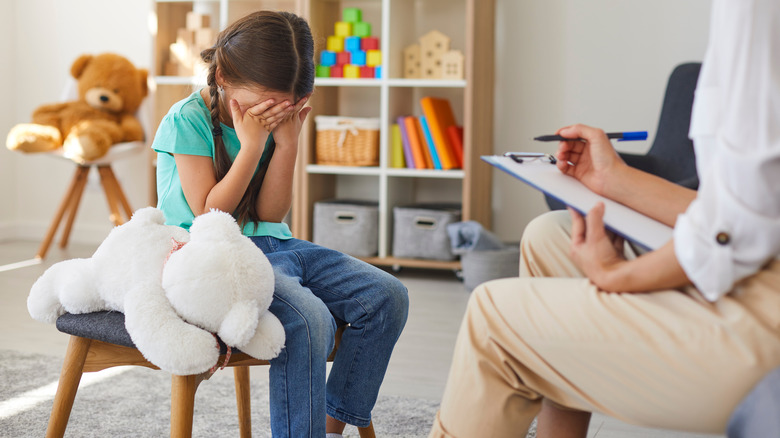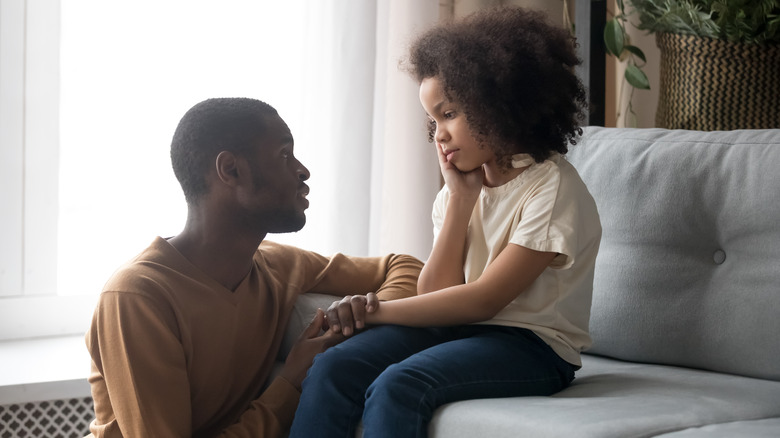When Are Mental Health Screenings Useful For Kids?
According to the U.S. Preventive Services Task Force, adolescents may benefit from routine screening for depression — but it may not be enough to fully combat issues. Julie Cerel, a licensed psychologist and director of the Suicide Prevention and Exposure Lab at the University of Kentucky, told NBC News that a likely issue is that if a child gets a screening and it's negative, then parents or caregivers may think that it's not something they need to worry about in the future. "Just because a teen passes a depression screening does not mean the adults around them should not get them help if they see extreme changes in mood or behavior," she said.
Though screenings alone may not be enough, a key benefit is that they can serve as a supplement to conversations about mental health that should take place long before symptoms of anxiety or depression arise. In February, the Centers for Disease Control and Prevention (CDC) reported that 1 out of every 5 American teenagers experienced major depression at least once between 2013 and 2019. They also said that in 2019 alone, 36.7% of high-schoolers felt persistent sadness or hopelessness, and 18.8% had seriously considered suicide.
NBC News said researchers found that screenings were not successful in identifying suicidal thoughts in children of any age. They also added that there isn't enough data to support regular screening of children under age 8 for anxiety or screening of children under age 12 for depression.
Talking to children about mental health
NBC News reports that while there may be a lack of substantial evidence to support routine mental health screenings for children of all ages, monitoring them for these problems poses no harm. Psychologist Julie Cerel advises talking to children about anxiety and depression and getting them the help they need. She said children benefit from learning about their emotions and feelings early and talking to them about their mental health is just as appropriate as teaching them the importance of eating healthy and brushing their teeth.
According to the Centers for Disease Control and Prevention (CDC), symptoms of anxiety in children include experiencing fear when they're away from parents, having phobias of different things or situations like bugs or visiting the doctor, experiencing fear around other people, worried about the future or possibility of bad things happening, and episodes of panic attacks. Signs of depression can include feeling sad or hopeless, irritability, not wanting to have fun, change in eating or sleep patterns, change in energy level, unable to pay attention, feeling worthless or guilty, and showing signs of self-injury or self-destructive behavior. Children who are showing signs of anxiety or depression should be referred to a specialist.
If you or someone you know is struggling with mental health, please contact the Crisis Text Line by texting HOME to 741741, call the National Alliance on Mental Illness helpline at 1-800-950-NAMI (6264), or visit the National Institute of Mental Health website.


